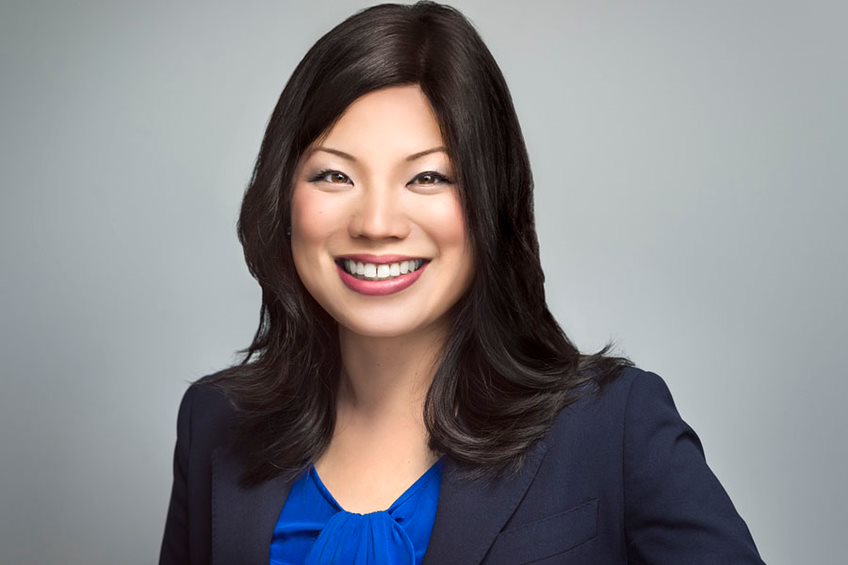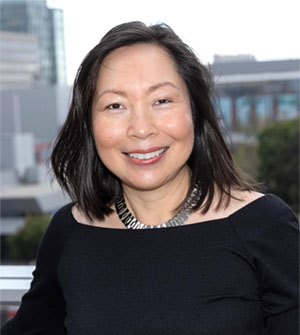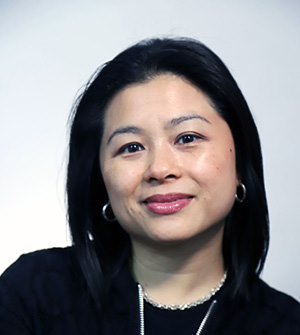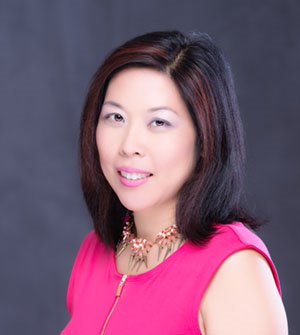

Winnie Sun was only two weeks into her first job at a major stock brokerage when her manager said in passing that her arrival let him tick two boxes on his tedious diversity to-do list, counting her as both an Asian hire and a woman hire.
“And he thought he was saying it in a positive way,” she recalls of the conversation, which took place more than a decade ago. “I thought, oh, that’s why they hired me. And later on, I thought, no, I’m going to show them. I’ll outproduce them, and I did.”
Often overlooked and frequently taken for granted, Asian women at financial advisory and investment firms are asserting their ambition as potential leaders and not just reliable worker bees. A new study from the Association of Asian American Investment Managers documents what Asian women have long said: They want and deserve more opportunities to prove their worth as experts, leaders and rainmakers.
"That humility of knowing that we don’t have all the answers and that we should look at things from someone else’s point of view — that’s an immigrant superpower.”
Winnie Sun, co-founder and managing director of Sun Group Wealth Partners
“They put you in one bucket and they never consider you for anything else,” Sun said of her early experience in the corporate realm. “I felt, my numbers are so incredible, I give you no drama, why aren’t you giving me more opportunities?”
Two mentors — both men — made all the difference. One coached Sun through early leadership responsibilities and helped her use them to build her professional reputation. The other advocated for her to present at a key industry conference and encouraged her to raise her voice. Now she's co-founder and managing director of Sun Group Wealth Partners and a widely followed financial personality on social media.

Asians comprise about 6% of the American workforce, according to the Bureau of Labor Statistics, in line with their presence as about 7% of the “personal financial advisor” category. But culturally, Asian women are neither seen nor heard, according to the AAAIM report. The report found that half of non-Asian respondents thought that the “bamboo ceiling” is real, compared to 80% of Asian-American women, who detected a specific set of barriers exacerbated by the intersection of race and gender.
Nearly two-thirds of Asian women respondents reported that they found their careers sidelined when they tried to move beyond junior positions. Two cultural perceptions — the idea that Asian women are self-effacing and humble, and the idea that Asian women are disproportionately enmeshed in family responsibilities — are most pernicious, according to the respondents.
“I became successful when I quit caring about what people think. I believe in my product and I’m just going to go out and do it.”
Brenda Chia, chief of capital development for Paladin Capital Development.
“It starts with stereotypes — how Asian women should behave versus how they actually behave. It’s a multifaceted challenge and takes some untangling,” said Brenda Chia, chief of capital development for Paladin Capital Development. While some high-profile Asian women have “broken away from the stereotypes,” the images of the "dragon lady" and submissive Asian functionary persist, she said.
And some positive cultural stereotypes, such as the work ethic of entrepreneurial immigrant and second-generation Asian families, don’t seem to translate to corporate career development cleanly, Chia and Sun said. "That humility of knowing that we don’t have all the answers and that we should look at things from someone else’s point of view — that’s an immigrant superpower,” Sun said.
Employers and whole industries are missing out on the potential contributions of Asian women as innovators and entrepreneurs, said Amy Wu Stratton. She left a position in finance and founded MyAsianVoice, an online community, sounding board and resource for Asian working women.
About 40% of Asian women identify as entrepreneurs, but they’re often not tapped for high-energy, high-profile positions in business development and other assignments that build entrepreneurial skills because of the persistent stereotypes, she said.
That’s why, Stratton contends, high-performing Asian women quietly quit.
Employers need first, to be cognizant of the stereotypes so they can neutralize them and then to proactively ensure that Asian women are sought out for high-potential assignments. As well, it’s key for employers to be aware that different Asian cultures and different generations of working Asian women might each experience and address the stereotypes differently.
“Midcareer Asian women are assertive,” said Stratton. “They understand what needs to be done. They know that sponsorship and networking is important. They want to move up, but there are no formal avenues for them to be visible and meet with senior staff.”

“Midcareer Asian women are assertive. They understand what needs to be done.”
Amy Wu Stratton, founder, MyAsianVoice
"There is an entrepreneurial streak in Asian-American women," said Maryling Yu, chief marketing officer of technology firm Backstop Solutions, which helped underwrite the research. "So many people came here as immigrants, and they had to be entrepreneurial to survive and thrive.”
Adds Chia: “I became successful when I quit caring about what people think. I believe in my product and I’m just going to go out and do it.”

"There is an entrepreneurial streak in Asian-American women. So many people came here as immigrants, and they had to be entrepreneurial to survive and thrive.”
Maryling Yu, chief marketing officer, Backstop Solutions
While the barriers outlined in the report are ongoing, a wave of hate crimes victimizing Asian women amplifies the need for shifting cultural perceptions, said Yu, and infused the findings with urgency. “This is our time to highlight these stories,” she said.

Relationships are key to our business but advisors are often slow to engage in specific activities designed to foster them.

Whichever path you go down, act now while you're still in control.

Pro-bitcoin professionals, however, say the cryptocurrency has ushered in change.

“LPL has evolved significantly over the last decade and still wants to scale up,” says one industry executive.

Survey findings from the Nationwide Retirement Institute offers pearls of planning wisdom from 60- to 65-year-olds, as well as insights into concerns.
Streamline your outreach with Aidentified's AI-driven solutions
This season’s market volatility: Positioning for rate relief, income growth and the AI rebound
